Accident Cars: What You Need to Know About Them
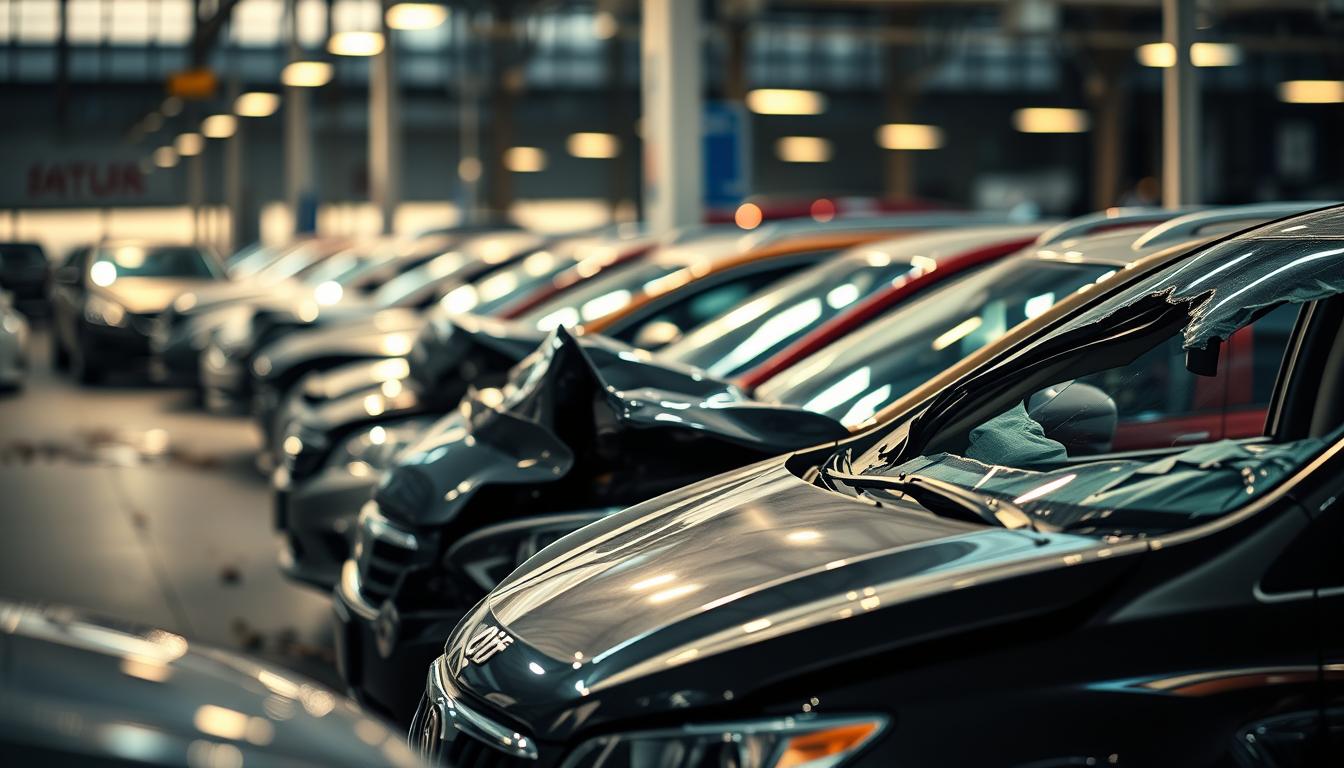
Did you know that millions of vehicles are damaged in accidents every year, and many of them end up for sale?
This significant segment of the automotive market offers potential value for buyers willing to take on cars with a damage history. Understanding what these vehicles are, their conditions, and the buying process is crucial before making a purchase decision.
Our comprehensive guide will walk you through everything you need to know about finding the right vehicle for your needs, from types and conditions to where to find them and how to navigate the buying process.
Key Takeaways
- Understand the different types and conditions of accident cars available for sale.
- Learn how to find and purchase accident cars from reputable sources.
- Discover the benefits and risks associated with buying accident cars.
- Get practical advice on inspecting, repairing, and legally owning an accident car.
- Make informed decisions with valuable insights for both first-time and experienced buyers.
Understanding Accident Cars
The world of accident cars is vast and varied, with different types and status that buyers should be aware of. Accident cars, often referred to as salvage vehicles, are those that have been involved in accidents and have sustained varying degrees of damage.
What Are Accident Cars?
Accident cars are vehicles that have been damaged in collisions or other incidents. The extent of the damage can vary significantly, from minor cosmetic issues to major structural problems that render the vehicle unsafe or uneconomical to repair.
Understanding what constitutes an accident car is essential for anyone considering purchasing such a vehicle.
Types of Accident Cars
Accident cars can be categorized based on the severity and type of damage they’ve sustained.
- Collision-damaged vehicles, resulting from impacts that may affect body panels, frame, or mechanical components.
- Water-damaged vehicles, exposed to flooding, potentially causing electrical issues and corrosion.
- Fire-damaged vehicles, with significant cosmetic and structural damage, and potential hidden issues.
- Hail-damaged vehicles, typically having cosmetic dents and dings but potentially intact mechanical systems.
Understanding the specific type of damage is crucial for assessing repair costs and potential long-term issues.
The Condition of Accident Cars
The condition of an accident car is a critical factor in determining its value and potential for repair. When evaluating an accident car, it’s essential to consider the extent and type of damage it has sustained.
Common Types of Damage
Accident cars can suffer from various types of damage, ranging from cosmetic issues like dents and scratches to more severe structural or mechanical problems. Common types of damage include:
- Body damage, such as crumpled hoods or bent frames
- Mechanical issues, like damaged engines or transmissions
- Electrical system malfunctions
- Interior damage, including torn upholstery or broken dashboard components
Assessing Vehicle Damage
To assess the damage, you should inspect the vehicle thoroughly, looking for signs of repair or potential hidden issues. This involves checking for any misaligned body panels or uneven gaps between parts, as well as reviewing any available repair records or accident reports.
Repair Potential
The repair potential of an accident car varies widely depending on the extent of the damage and the vehicle’s make, model, and age. Some cars may require only minor repairs, while others may need extensive work. Key factors to consider include the availability and cost of replacement parts, as well as the estimated cost of labor. By balancing the purchase price, estimated repair costs, and the vehicle’s post-repair value, you can determine if it represents a worthwhile investment.
Salvage Titles Explained
Understanding the implications of a salvage title is crucial for anyone considering purchasing an accident car. A salvage title is assigned to a vehicle that has been damaged to the point where repair costs exceed a certain percentage of its value, typically determined by the insurance company.
The Definition of a Salvage Title
A salvage title is a designation given to a vehicle that has been deemed a total loss by an insurance company. This usually happens when the cost of repairs is too high compared to the vehicle’s worth. The salvage title indicates that the vehicle has significant damage and is not roadworthy in its current state.
Salvage vs. Clean Titles
The main difference between a salvage title and a clean title lies in the vehicle’s history. A clean title indicates that the vehicle has not been declared a total loss, whereas a salvage title signifies significant damage. Vehicles with clean titles generally have higher resale values and are considered more reliable. In contrast, vehicles with salvage titles are often sold at lower prices due to their history.
Rebuilt Titles
Rebuilt titles are issued to vehicles that were previously given a salvage title but have since been repaired and inspected. The process involves documented repairs and a thorough inspection by state officials to ensure the vehicle meets safety and operational standards. Here are some key points about rebuilt titles:
- Rebuilt titles indicate a vehicle’s salvage history but allow it to be registered for road use.
- The process of converting a salvage title to a rebuilt title varies by state.
- Vehicles with rebuilt titles have higher values than those with salvage titles but are still worth less than clean-titled vehicles.
Understanding the inspection and certification process for rebuilt titles helps in assessing the quality of repairs performed on previously salvaged vehicles. This knowledge is essential for making an informed decision when purchasing an accident car with a rebuilt title.
Benefits of Buying Accident Cars
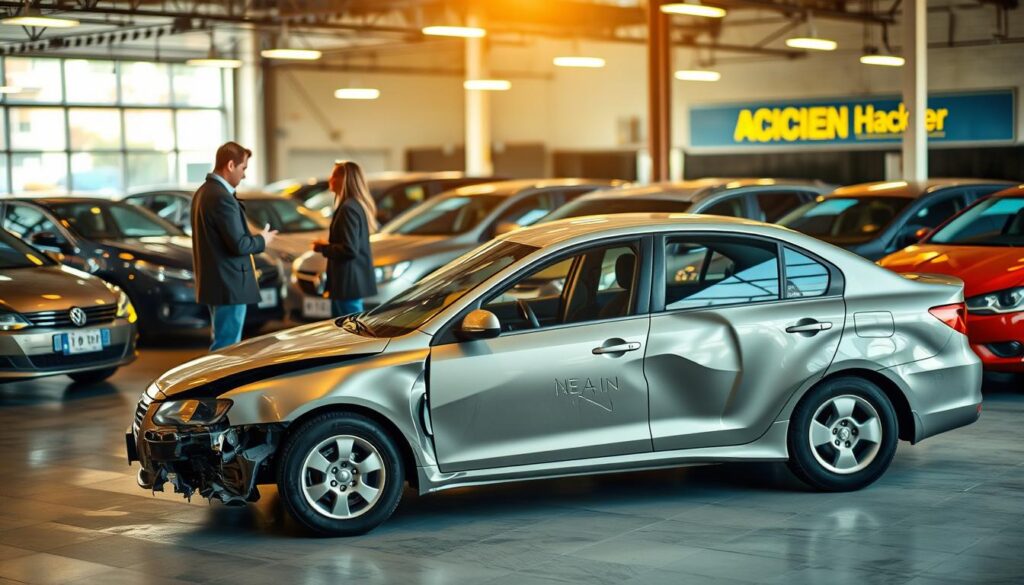
The benefits of buying accident cars are multifaceted and can be very appealing to the right buyer. For more than 11 years, we’ve been the premier choice for buyers of damaged vehicles to quickly find, purchase, and cash-in on damaged vehicles. This experience has shown us that with the right knowledge and resources, buying accident cars can be a highly rewarding investment.
Cost Savings
One of the most significant advantages of purchasing accident cars is the potential for cost savings. These vehicles are typically sold at a fraction of their original price, making them an attractive option for those looking for affordable transportation or parts. You can save money upfront by buying an accident car, but you should also consider the potential costs of repairs.
Parts and Restoration Opportunities
Accident cars can provide a treasure trove of parts and restoration opportunities. For those who enjoy DIY projects or are looking to restore a vehicle, accident cars can be a valuable resource. You can salvage usable parts or restore the vehicle to its former glory, potentially increasing its value.
Investment Potential
Properly repaired accident cars can represent significant investment opportunities. The key to making a profit lies in understanding the spread between the purchase price, repair costs, and potential resale value. Certain makes and models retain their value better after repair, making them particularly good candidates for investment purchases.
- The growing market for affordable used vehicles has increased demand for well-repaired accident cars, potentially improving their resale prospects.
- Understanding market trends and buyer preferences helps in selecting accident cars with the best investment potential.
- With the right knowledge and resources, you can capitalize on the sale of restored accident cars, making it a lucrative venture.
When considering the purchase of an accident car, it’s essential to weigh the potential benefits against the risks. By doing so, you can make an informed decision that aligns with your financial goals and mechanical capabilities.
Risks and Challenges
When considering the purchase of accident cars, it’s crucial to be aware of the potential risks and challenges involved. While these vehicles can offer significant cost savings, they also come with unique concerns that can impact their value and usability.
Hidden Damage Concerns
One of the primary risks associated with accident cars is the potential for hidden damage. Even if the visible damage appears minimal, there could be underlying issues that aren’t immediately apparent. It’s essential to thoroughly inspect the vehicle and consider hiring a professional to assess its condition.
Hidden damage can lead to costly repairs down the line, potentially offsetting any initial savings from the purchase. Buyers should be cautious and not rely solely on the seller’s description or initial inspection.
Insurance Challenges
Accident cars, particularly those with salvage or rebuilt titles, can be challenging to insure. Many insurance companies are hesitant to provide full coverage for these vehicles, and premiums may be higher due to the increased risk.
- Insurance companies may view accident cars as higher-risk vehicles.
- Premiums for accident cars can be significantly higher than for clean-titled vehicles.
- Some insurance providers may not offer comprehensive coverage for salvage or rebuilt title vehicles.
Resale Value Considerations
The resale value of accident cars is another significant concern. Vehicles with a damage history typically experience significant depreciation beyond normal market rates. The impact on resale value can be substantial, with vehicles losing 30-50% of their value compared to clean-titled equivalents, even after quality repairs.
- The extent of the original damage.
- The quality of repairs made.
- The vehicle’s make and model, as some retain value better than others.
- Documentation of repairs, which can help mitigate some resale value loss.
Buyers should consider their long-term ownership plans when purchasing accident cars for sale, as short-term ownership may not allow sufficient time to recoup the value of repairs. Understanding these risks and challenges is crucial for making an informed decision when buying a vehicle with a damaged history.
Where to Find Accident Cars for Sale
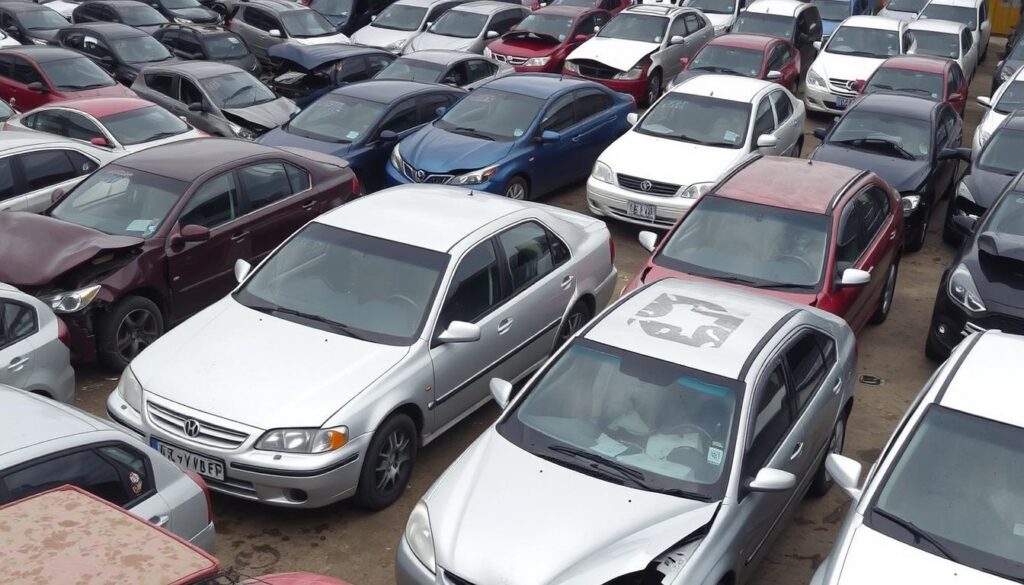
Accident cars can be found through various channels, each with its own advantages and considerations. Whether you’re looking to repair and resell or purchase for parts, knowing where to look is key.
Online Salvage Auctions
Online salvage auctions provide a platform to bid on accident cars from the comfort of your own home. You can browse through listings, inspect vehicle details, and place your bid without the need for physical presence. With the convenience of online bidding, you won’t have to place multiple bids or keep an eye on the auctions; just place your max bid and let the system bid on your behalf.
Salvage Dealers and Yards
Salvage dealers and yards specialize in selling accident cars, often with a range of makes and models available. These businesses typically have inspected the vehicles and can provide detailed information about the damage and any repairs made. Visiting a salvage yard allows you to inspect the vehicle personally, giving you a clearer understanding of its condition.
Private Sales
Private sales of accident cars can offer better values than commercial sources. These transactions often occur through classified listings, social media marketplaces, and word-of-mouth. When buying from a private seller, you can negotiate directly and potentially gain more insight into the vehicle’s history. However, it’s crucial to exercise diligence, including thorough inspection and verifying the title status.
- Private sales may offer more competitive pricing due to the lack of overhead costs.
- Direct negotiation with the seller can provide more detailed information about the vehicle’s condition.
- Building a network in the automotive repair industry can lead to private sale opportunities.
By exploring these different channels, you can find the right accident car for your needs, whether it’s for repair, parts, or investment.
Popular Makes and Models in the Accident Car Market
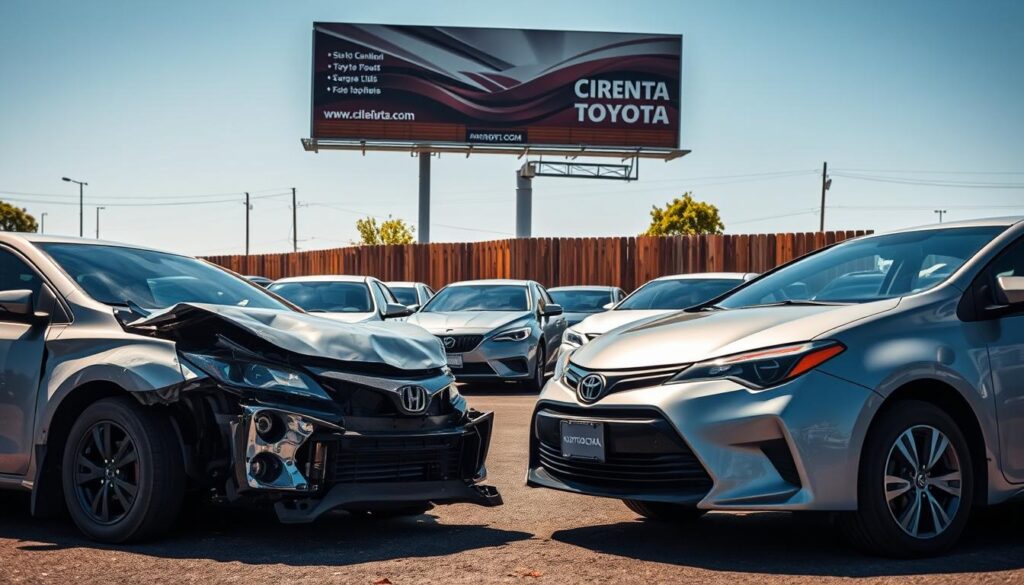
When exploring the accident car market, you’ll find a variety of makes and models available for sale, often at substantial savings. This market segment offers opportunities for buyers to purchase vehicles that, despite being damaged, can be repaired or used for parts.
Most Common Accident Cars Available
The accident car market includes a broad spectrum of vehicles. Among the most common are models from major manufacturers that are frequently involved in accidents or have been previously owned. These can range from economy cars to luxury vehicles.
Some of the most frequently found models include those from well-established brands. For instance, luxury vehicles like Land Rover models, particularly Range Rovers, are available with repairable damage. These vehicles represent significant value opportunities, although repair costs can be substantial.
Best Value Accident Cars
Certain models stand out as offering the best value in the accident car market. Vehicles from 2013 and newer, such as the 2013 Ford Lincoln MKZ, are noteworthy. These models typically include modern safety features and technology that remain valuable even after repairs.
Additionally, luxury cars like BMW, Mercedes-Benz, and Land Rover often come with dramatic discounts, making them more accessible to budget-conscious buyers. The potential savings can be significant, with discounts ranging from 50-70% compared to undamaged examples.
Luxury Accident Cars
Luxury vehicles are prominently featured in the accident car market. Brands such as BMW (4763 units), Mercedes-Benz (4664 units), Lexus (3759 units), and Audi (2814 units) are among the most common luxury makes available. Other luxury brands like Cadillac (2161 units), INFINITI (2264 units), Porsche (547 units), Jaguar (411 units), and Maserati (155 units) also have a presence.
These luxury vehicles, despite their complex engineering and the need for specialized parts, can offer substantial savings when purchased at a discount. Buyers should carefully assess the damage before making a purchase to ensure the vehicle can be economically repaired.
Overall, the accident car market provides a unique opportunity for buyers to acquire vehicles at discounted prices. Whether you’re looking for a project car or seeking to save on a luxury vehicle, there’s a wide range of options available for sale.
The Buying Process for Accident Cars

Navigating the process of buying accident cars can be complex, but understanding the steps involved can make it more manageable. Whether you’re a seasoned buyer or new to the market, knowing what to expect can help you make informed decisions and potentially save you from costly mistakes.
Registration and Licensing Requirements
Before you start buying accident cars, it’s essential to understand the registration and licensing requirements in your state. These can vary significantly, and non-compliance can lead to legal issues. For instance, some states require a special permit or license to register a salvage vehicle. Researching these requirements beforehand can streamline the process and avoid potential headaches. You may also want to consult with a legal professional, much like those who specialize in estate planning, to ensure you’re meeting all necessary legal obligations.
Bidding at Auctions
Bidding at auctions is a common method for purchasing accident cars. Many auction houses offer online bidding options, making it more accessible to a wider range of buyers. Even if you don’t have a license, some auction houses provide a unique proxy bidding system that allows both licensed salvage dealers and non-licensed buyers to secure deals on valuable damaged vehicles. This system can be particularly beneficial for those who are new to the market or prefer not to be physically present at the auction.
Payment and Transportation
Once you’ve successfully bid on an accident car, you’ll need to complete the payment and arrange for transportation. Typically, payment must be made within 3-7 business days of purchase, with options including wire transfers, cashier’s checks, or online payment systems. For transportation, you can hire specialized auto transport companies, use tow services, or drive the vehicle if it’s operational and legally permitted. It’s also worth noting that some auction houses offer integrated transportation services, which can simplify the logistics. Cross-country transportation can cost between $500-$1,500, depending on distance and vehicle size, so it’s crucial to factor this into your overall cost.
Key Considerations:
- Payment for auction vehicles typically must be completed within 3-7 business days of purchase.
- Transportation arrangements should be made promptly to avoid storage fees.
- Options for transporting accident cars include hiring specialized auto transport companies or using tow services.
- Cross-country transportation costs can range from $500-$1,500.
- Some auction houses offer integrated transportation services.
Inspecting an Accident Car Before Purchase
The key to making a smart investment in an accident car lies in a meticulous inspection. When you’re considering purchasing a vehicle that’s been in an accident, it’s crucial to look beyond the surface level to understand its true condition.
What to Look For
During your inspection, start by examining the exterior and interior of the car for any signs of damage or needed repairs. Check for any mismatched paint, uneven panel gaps, or visible overspray, as these can indicate hasty or unprofessional repairs. Look for fresh undercoating or seam sealer, which may be covering up rust or structural repairs.
You should also inspect the vehicle’s safety features, such as airbags. Airbag lights or missing airbags can indicate safety systems that require proper replacement by qualified technicians.
Professional Inspection Services
While your own inspection is crucial, it’s also highly recommended to use professional inspection services. These experts can provide a detailed report on the car’s condition, highlighting any potential issues that may not be immediately apparent. You can search for “accident car inspection services” to find professionals in your area.
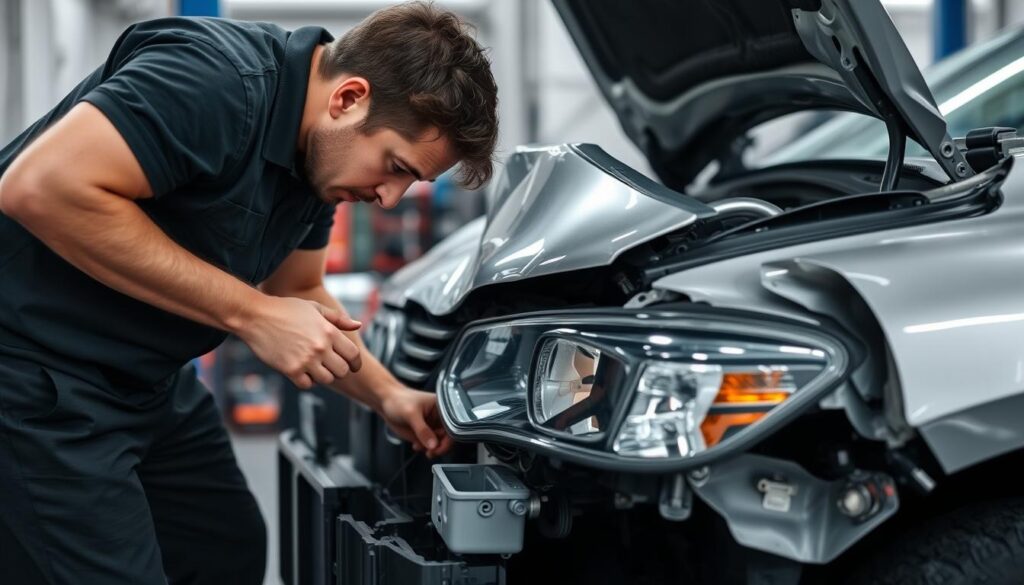
Red Flags to Watch Out For
Certain red flags during your inspection can indicate potentially serious issues. Be cautious if you notice:
- Misaligned doors, hood, or trunk, which suggest frame damage that could affect the vehicle’s handling and safety.
- Strong odors, particularly musty smells, which may indicate water damage that could cause ongoing electrical and corrosion issues.
- Any signs of hasty or unprofessional repairs, such as mismatched paint or uneven panel gaps.
Being aware of these red flags can help you make a more informed decision when considering the purchase of an accident car. As you prepare to drive away in your new vehicle, ensure you’re making a sound investment by being thorough in your inspection.
Repairing and Restoring Accident Cars
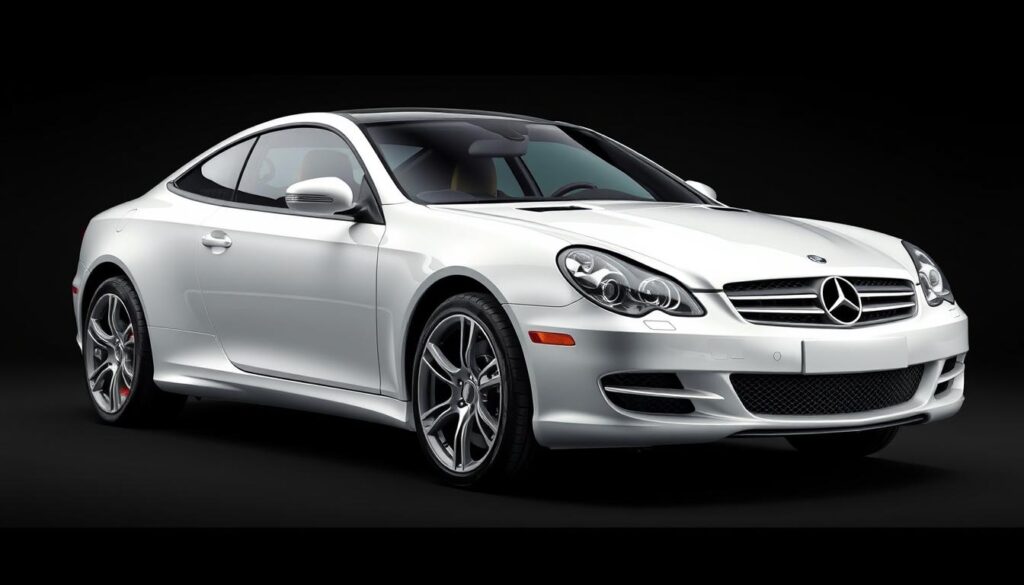
You can save money and get a reliable vehicle by repairing and restoring accident cars. Popular models like the Honda Accord, Toyota Camry, Ford F-150, and Chevrolet Silverado are often available in the accident car market. The process involves assessing the damage, finding the right parts, and estimating the repair costs.
DIY vs. Professional Repairs
When it comes to repairing accident cars, you have two main options: DIY repairs or hiring a professional. DIY repairs can be cost-effective for minor damage, but for more extensive damage, professional help is recommended. Professional mechanics have the necessary expertise and equipment to ensure that repairs are done correctly and safely.
For instance, if you’re dealing with a damaged Ford F-150, you might need to replace the frame or repair the engine. In such cases, professional repairs are advisable to ensure that your truck is safe to drive.
Finding Parts for Accident Cars
Finding the right parts for accident cars can be challenging, but there are several options available. You can check online marketplaces, salvage yards, or specialty stores that cater to your vehicle’s make and model. For popular models like the Honda Accord or Toyota Camry, it’s relatively easier to find parts.
Salvage yards are a great resource for finding used parts at a lower cost. You can also consider online forums and communities where enthusiasts share information about sourcing parts.
Cost Estimation for Repairs
Accurate repair cost estimation is crucial when evaluating accident cars. You need to assess both visible and potential hidden damage. Body damage can cost between $300-$1,500 per panel to repair or replace, with luxury vehicles and trucks generally being more expensive.
For example, structural repairs involving frame straightening or welding can range from $600 to $10,000, depending on the severity and vehicle type. Mechanical repairs, such as engine or transmission replacement, can cost between $1,500-$7,000, including parts and labor. It’s a good idea to add a 15-20% contingency to your estimates to account for unexpected issues.
By carefully planning and executing repairs, you can get your accident car back on the road safely and efficiently, ready to drive for many miles.
Financing and Insurance for Accident Cars

The process of financing and insuring accident cars involves unique challenges and considerations. As you navigate the complexities of owning an accident car, understanding your financing and insurance options is crucial.
Financing Options
Financing an accident car can be more complicated than financing a vehicle with a clean title. Many lenders are hesitant to provide loans for salvage-titled vehicles due to their reduced value and potential for hidden damage. However, some specialized lenders and salvage yards offer financing options for accident cars. You may need to prepare for a larger down payment and potentially higher interest rates. It’s essential to shop around and compare rates from different lenders to find the best deal.
Some lenders specialize in salvage title financing, so it’s worth exploring these options. You should also be prepared to provide detailed documentation about the vehicle’s condition and any repairs made.
Insurance Considerations
Insurance for accident cars presents unique challenges, with options varying based on the vehicle’s title status and your location. Liability insurance is generally available for all vehicles, regardless of title status, and is legally required in most states. However, comprehensive and collision coverage can be difficult to obtain for salvage-titled vehicles.
- Liability insurance covers damage you cause to others.
- Comprehensive and collision coverage protects your vehicle but may not be available for salvage-titled vehicles.
- For rebuilt title vehicles, full coverage may be available but typically costs 20-30% more than for comparable clean-titled vehicles.
- Documenting all repairs with photographs and receipts can help when negotiating coverage and values with insurance providers.
- Some specialized insurers focus on the rebuilt and modified vehicle market.
Shopping around for insurance quotes from multiple companies can help you find the best coverage for your accident car. Personal experience with insurance providers can vary significantly, so it’s worthwhile to compare options.
Success Stories: Turning Accident Cars Into Treasures
For those willing to put in the effort, accident cars offer a unique opportunity to drive away in a quality vehicle at a fraction of the cost. Many have successfully transformed these cars into treasures, and their stories can serve as inspiration for you.
Real Customer Experiences
Customers like Hans Bashore have shared their positive experiences with purchasing and restoring accident cars. Hans purchased four salvage vehicles from 74 Auto LLC and praised their honesty and competitive edge. He appreciated the detailed explanations of the risks and resources available for repair. Such testimonials highlight the potential for a successful transaction when working with reputable sellers.
Before and After Transformations
The transformation of accident cars can be dramatic. Before and after photos often showcase significant improvements, from cosmetic repairs to performance upgrades. You can witness severely damaged exteriors restored to a like-new appearance through quality body work and painting. Some restorers even enhance the vehicle’s original specifications, making them better than before. This process not only improves the car’s appearance but also its overall performance, allowing you to drive with confidence.
Conclusion
The accident car market is a complex landscape, but with the right knowledge, you can uncover hidden gems. As you’ve learned, accident cars represent a unique opportunity in the automotive market, offering significant savings for informed buyers willing to navigate the challenges of damage assessment and repair.
By understanding the various types of accident vehicles and their potential, you can make informed purchasing decisions based on your skills, resources, and goals. Whether you’re looking for economy cars, luxury vehicles, or trucks, the key to success lies in balancing purchase price, repair costs, and potential value.
With careful research, thorough inspection, and a realistic assessment of repair feasibility, you can mitigate the risks associated with accident cars and capitalize on the benefits. Online auctions and sale listings offer a wide range of options, from minor cosmetic damage to major structural issues, allowing you to find the right car for your needs and budget.
By following the guidelines outlined in this article, you’ll be well-equipped to navigate the accident car market and find exceptional value in the sale of accident cars, ultimately driving away in a quality vehicle at a fraction of the cost.
